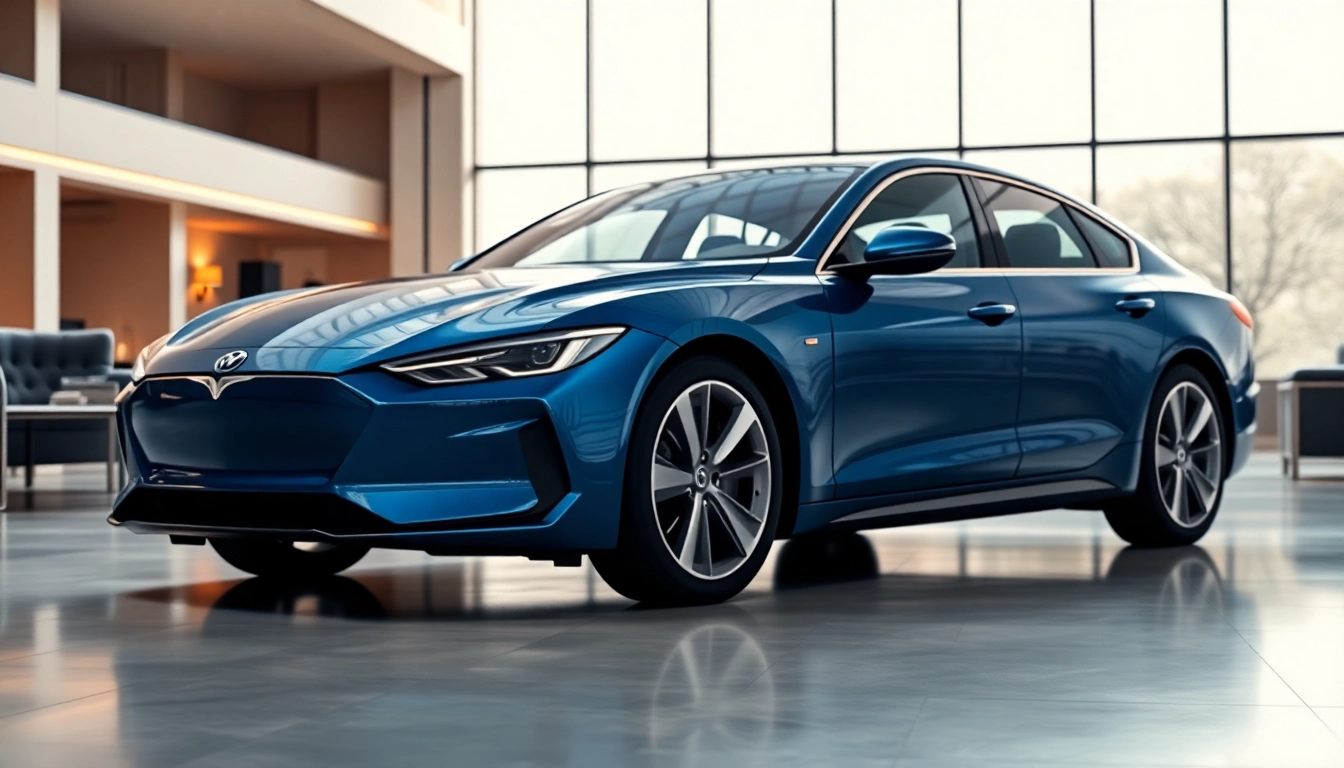Understanding What Makes the Perfect Car
Finding your perfect car is a journey that encompasses understanding your unique needs, preferences, and lifestyle. Much like individuals, vehicles come with their distinct features and characteristics, which may or may not align with what you envision as the ideal choice. This article serves as a comprehensive guide to help you navigate the exciting yet complex world of car buying, taking into account how to determine what makes a car perfect for you.
Defining the Perfect Car for Different Buyers
The definition of the perfect car varies significantly from one buyer to another. For some, the perfect car embodies speed and performance; for others, it might represent comfort and reliability. Factors such as age, family status, lifestyle, and personal taste significantly impact what constitutes the perfect vehicle:
- For Families: Safety features and spacious interiors may take precedence. Brands like Volvo and Honda are often praised for their family-friendly options.
- For Commuters: Fuel efficiency, compact size, and ergonomics are crucial. Toyota Corollas and Honda Civics are popular choices among urban commuters.
- For Enthusiasts: Performance, aesthetics, and brand heritage often play a vital role. Cars like the Porsche 911 and Ford Mustang repeatedly emerge in discussions about dream vehicles.
Popular Features that Shape Your Perfect Car
Understanding what features are most desired in a perfect car can guide you toward making an informed decision. Key attributes often include:
- Fuel Efficiency: With rising fuel costs, many prioritize cars that offer impressive mileage.
- Safety Technologies: Advanced driver-assistance systems (ADAS) like lane-keeping assist, adaptive cruise control, and automatic emergency braking are highly sought after.
- Interior Comfort: Features like heated seats, touchscreen displays, and premium sound systems often sway buyer decisions.
- Technology Integration: Compatibility with smartphones and the latest infotainment systems have become standard considerations.
Evaluating Personal Needs and Preferences
Identifying your personal needs and preferences is a crucial step in the journey to finding your perfect car. Consider the following questions:
- What is your budget? Understanding your financial limits will guide your options.
- How do you intend to use the vehicle? Evaluate whether it’s for commuting, family trips, or leisure activities.
- What environmental factors matter? If you live in an area with harsh winters, all-wheel drive or enhanced safety features may be essential.
By answering these questions, you will sharpen your focus on the attributes and features that are essential in your car search.
Steps to Identify the Perfect Car
Once you have a clearer understanding of your needs and preferences, the following steps can streamline your process in identifying the perfect car.
Establishing Your Budget
Setting a realistic budget is the foundation of a successful car purchase. This includes considering the full cost of ownership, from the purchase price to insurance, fuel, and maintenance costs. Here are steps to establish your budget:
- Determine Your Financial Capacity: Analyze your income and expenses to allocate a comfortable monthly payment that fits your financial situation.
- Factor in Additional Costs: Don’t forget about sales tax, registration fees, insurance premiums, and potential repairs.
- Explore Financing Options: Investigate options such as auto loans, leasing, or outright purchases, and understand the implications of each on your budget.
Researching Car Models and Options
Conducting extensive research helps ensure that you are well-informed about various makes and models available in the market. The research process can be broken down into easy steps:
- Use Online Resources: Tools like Kelley Blue Book, Edmunds, and AutoTrader provide valuable insights about specific models, their average prices, and user reviews.
- Read Reviews: Consumer and expert reviews can give you a balanced perspective about a car’s performance, comfort, safety, and reliability.
- Compare Models: Look into similar models from different manufacturers to assess which vehicle meets your needs most effectively.
Utilizing Online Car Finder Tools
Car finder tools can be a game-changer in simplifying your search. Websites like Kelley Blue Book or CarGurus allow you to filter vehicles based on specific criteria such as price, make, model, and features. Here’s how you can leverage these tools:
- Use filters to narrow down your search to the features that matter most to you.
- Set alerts for when the price of a car you are interested in drops.
- Explore certified pre-owned options that provide additional peace of mind.
Test Driving and Finalizing Your Perfect Car
After narrowing down your options, test-driving cars becomes a critical step in the selection process. This phase allows you to assess the feel of the car directly, which website research cannot replicate.
The Importance of Test Drives in the Selection Process
When you finally have a shortlist, it’s time to hit the road:
- Comfort: Pay attention to how comfortable you feel driving the vehicle. Consider visibility, pedal placement, and seating position.
- Handling: Examine how the vehicle responds through turns, acceleration, and braking.
- Noise Levels: Assess the sound levels in the cabin at various speeds to determine if it’s pleasing or distracting.
A test drive is your opportunity to evaluate whether a car lives up to your expectations based on research.
Negotiating Your Perfect Car Purchase
Once you have completed test drives, the next step involves negotiating the terms of the deal. Here are expert strategies to ensure you get the best price:
- Do Your Homework: Having researched market prices will give you an upper hand during negotiations.
- Be Prepared to Walk Away: If the price doesn’t meet your budget, be willing to leave. This often prompts sellers to offer better deals.
- Focus on the Total Cost: Instead of just looking for lower monthly payments, evaluate the overall cost of the vehicle, including fees.
Considering Financing and Warranties
Financing doesn’t just stop at deciding whether to lease or buy. It’s advisable to consider additional warranties and financing options:
- Check Your Credit Score: A better credit score can lead to more favorable financing terms.
- Understand Warranty Options: Familiarize yourself with manufacturer warranties and whether they meet your needs for long-term reliability.
- Evaluate Add-Ons: Extended warranties or service plans may be beneficial, but it’s crucial to analyze their cost versus potential benefits.
Maintaining Your Perfect Car
Your responsibility doesn’t end once you’ve driven your perfect car off the lot; maintaining it is critical to ensure it remains in top condition. Following best maintenance practices helps to preserve the lifespan and value of your vehicle.
Essential Maintenance Practices
The following maintenance routines are vital for keeping your car healthy:
- Regular Oil Changes: Maintaining the recommended oil change intervals protects your engine.
- Tire Rotation: Regularly rotating your tires promotes even wear and prolongs their life.
- Brake Checks: Routine inspections of your brakes can prevent costly repairs later on.
- Fluids Inspection: Ensure that all fluids (coolant, brake, transmission) are at optimal levels through regular checks.
Upgrades and Modifications for Enhancing Performance
Car enthusiasts often seek to personalize or enhance their vehicles. Modifications can extend from aesthetic changes to performance upgrades:
- Performance Chips: These can improve handling, response times, or fuel economy.
- Upgraded Exhaust Systems: These can enhance engine performance and create a more satisfying sound.
- Aesthetic Enhancements: Custom wheels, new paint jobs, or interior detailing can enhance the overall appearance.
Engage with professional car shops for advice on effective upgrades that won’t compromise the vehicle’s integrity.
Protecting Your Investment: Insurance and Care Tips
Protecting your vehicle is essential, and understanding the insurance landscape helps ensure that you’re covered against unforeseen events:
- Evaluate Coverage Options: Comparing insurance providers can help you find the coverage that best suits your needs.
- Consider Comprehensive Insurance: This provides broader protection against theft and other damages beyond accidents.
- Explore Care Products: Utilizing products to maintain the exterior and interior of your car can help preserve its value.
Finding Community and Support Around Your Perfect Car
Being part of a community that shares your interest in cars can enhance your experience and provide valuable support as you explore your perfect vehicle.
Joining Car Enthusiast Communities
Being a member of car enthusiast groups can expose you to new ideas and community support. Consider the following:
- Local Clubs: Many regions have local car clubs where enthusiasts meet to discuss and share experiences.
- Social Media Groups: Platforms like Facebook and Reddit have numerous groups dedicated specifically to various makes and models.
Attending Car Shows and Events
Participating in car shows allows individuals to network, share knowledge, and discover new models. Events like these often showcase the latest technologies and trends in the industry:
- Educational Opportunities: Many shows offer seminars or discussions on car care, maintenance, and performance enhancements.
- Networking with Experts: Engage with industry professionals to gain insights and share experiences.
Leveraging Online Forums and Resources
Online forums and communities such as those on Reddit and automotive blogs can provide invaluable information on your car of interest. By connecting with other car owners, you can:
- Gain insights on common issues and fixes.
- Learn about the latest news and trends in the automotive industry.
- Discuss upgrades and maintenance strategies.
In conclusion, finding your perfect car is an exciting journey. Armed with knowledge, a clear understanding of your needs, and a supportive community, you’ll be better equipped to make informed decisions that align with your ultimate vision of the ideal vehicle.



